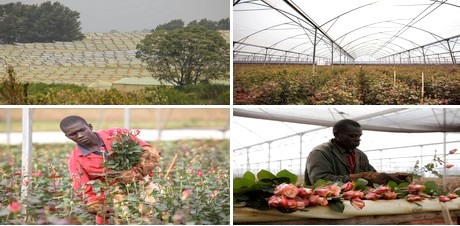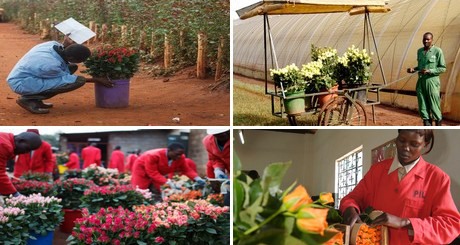
Euro- dollar exchange rate
The exchange rate between the dollar and the euro is the main reason for this tough year. "We pay all our major bills, like air freights, chemicals and fertilizers, in dollars and we invoice our products in euros. Because of the strong dollar and weak euro, we lost about 25% of our income," says Wekesa. Fortunately, it is correcting itself now. "Hopefully by the end of the year, we will be back at the level we were two to three years ago," he says.
Heavy rainfall
From March till June, July is the long rain-season in Kenya. So, during this time of the year many growers have to deal with rainfall. However, the rainfall of this year was quite extreme in the Western part of Kenya, where the farm of Panocal is situated. "The heavy rainfall affected our roads. We are in a rural area and the first good roads are 14 kilometres away. In order to be on time at the airport in Nairobi we could not wait for governmental support so we did as much as we could to repair these roads. Tractors were also needed to pull our trucks out of the mud. All in all, it caused a lot of added cost," he says.
Fortunately, the long season is over now, but the short rain season is just around the corner. "From September to October is a season with short rain falls. These will usually not cause major problems," says Wekesa.
However, it might not all be over yet and it might become even worse. According to experts, the strongest and wettest El Nino in 60 years is under way to East Africa, reports allafrica.com. It will bring heavy rains, floods and malaria. "We will keep our fingers crossed," says Wakese. "We just recovered from a massive storm that destroyed a couple of acres of our greenhouse in 2012. It took about 1-1.5 years to rebuild it again. It would be horrible if something like that happens again, not only for the growers, but for the entire East African population," says Wekesa.

Future plans
Due to this tough year, Wekesa expects everyone to hold back on expansion plans. Also Panocal is not intending to expand anytime soon. "We planned to add 4 to 5ha but we only added 2ha, because of the lack of cash. We will just wait for a better time to expand, hopefully next year," concludes Wekesa.
For more information
Panocal

Paul Wekesa
Email: [email protected]
www.panocal.com
